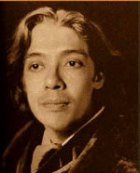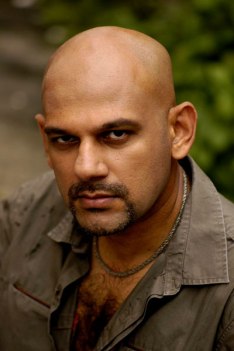Antares is provoked by GROSS INDECENCY
Moises Kaufman’s multi-perspective courtroom drama, GROSS INDECENCY: The Three Trials of Oscar Wilde, was pulling in the crowds and winning the Critics’ Choice award for best play of 1998 – even as Malaysians were being titillated or outraged by their very own “Trial of the Century.”
In 1895, Oscar Wilde was found guilty of “gross immorality” and sentenced to two years’ hard labor at Reading Gaol. A little over a century later, Anwar Ibrahim was accused of sodomy (among other offences), found guilty by patently partisan judges, and sentenced to fifteen years in Sungai Buloh Prison. Anwar’s claim that there was a high-level conspiracy to topple him was meticulously ignored.
Wilde was a literary peacock and iconoclast; Anwar an orator and politician, but what both men had in common were their high public profiles, their growing influence on youth, and the perceived threat they represented to the Status Quo. That both were accused of sodomy (“unnatural practices” or “sex against the natural order”) is indeed revealing. For centuries, abstinence and celibacy in sexual matters had been promoted as godly virtues – but heterosexual sex within the legally, socially, or religiously sanctioned precincts of marriage was accepted (if only in the interest of procreation).
And yet snide reports of rampant pederasty within priestly, public school, and even parliamentary circles were hardly uncommon. Buggery, after all, goes back as far as the Spartan Army and was a fact of Athenian and Roman life. Socrates himself, while married to Xanthippe, had a passionate affair with an athletic and youthful male disciple named Alcibiades, and every self-respecting Roman senator had his favorite catamite. And in Victorian England, closet homosexuality had reached near epidemic proportions, so much so that the day after Oscar Wilde was sentenced, more than 600 scions of the upper crust caught the boat to Calais.
Indeed, the nation was plagued by nasty rumors of buggery and skulduggery in high places to the extent that it became necessary to make a public example of Wilde, if only to reassure voters that all was well with the Empire.
Kaufman’s cunningly crafted script is a collage of text gleaned from news clippings, private letters, journal entries, original trial transcripts, and personal memoirs. Bringing the philosophical and political subtext of Wilde’s trials and tribulations to dynamic life through ten actors, all male, and making it work as post-Brechtian theater was indeed a dramaturgical challenge that Kaufman met with aplomb.
The Instant Café Theatre production of GROSS INDECENCY directed by Rey Buono was staged in a nightclub (O*range), which effectively blurred the boundaries between actors and audience while adding a surreal edge to the proceedings. Buono is to be heartily commended first of all for introducing KL audiences to this bitingly topical play; and for his confident, intelligent directorial hand, especially in working with the multi-tiered space; and lastly but not least for his illuminating program notes.
The cast was, on the whole, very well chosen, but I was particularly impressed by the tremendous conviction Reza Zainal Abidin brought to his multiple rôles of Charles Parker and the Judge, and especially his queenly cameo of Victoria Regina. Chacko Vadaketh excelled as Sir Edward Clarke, Wilde’s attorney (and little wonder, as Vadaketh was formerly a practicing lawyer from a prominent legal family).
As the rough-and-ready Marquess of Queensbury and a couple of other characters, Patrick Teoh turned in a powerful performance with a highly charged dynamic between him and his rebellious son Lord Alfred Douglas, elegantly portrayed by Chowee Leow. To say that Edwin R. Sumun, Rashid Salleh, Shamser, Ghafir Akbar, and Kurt Crocker (as the academic pseudo, Martin Taylor) did justice to their rôles may be saying too little, but each certainly deserved an individual round of applause.
Which leads us to the casting of Jit Murad as Oscar Wilde. I must admit I am still undecided about this pivotal element of Buono’s directorial vision. Murad, a fabulous and much admired actor and playwright, was to many the obvious choice for Oscar. After all, they appear to have much in common: both are known for their insouciant charm, irrepressible wit, and effervescent intelligence. Indeed, there are some who regard Jit Murad as a Malaysian Oscar Wilde. Perhaps it was the very obviousness of this casting option which, in the end, gave rise to a certain incongruity that subtly undermined the dramatic impact and intellectual gravity of the production. Murad is such a distinctive personality in his own right that what transpired on stage was ‘The Three Trials of Jit Murad’ – not Oscar Wilde.
The aesthetic ethos embodied in the life and work of Oscar Wilde raised very important questions about art versus politics; private versus public mores; individual liberty versus the conformative forces of a hypocritical society. To a large extent, Buono succeeded in spellbinding the KL audience with a courtroom spectacle that was in no part dull or slow-moving – indeed it was rather like déjà vu to anyone who has been following the farcical trials of Anwar Ibrahim. In this instance, Murad’s eternally youthful good looks (and his exaggeratedly camp mannerisms) made his Wilde a bit too much of a flippant fop to be taken seriously as an aesthetic revolutionary or intellectual beacon. The lightness of his physical being gave the lie to the weightiness of the philosophical cross Wilde had to bear. I can’t help thinking that Murad would have been absolutely perfect cast as “Bosie” (Lord Alfred Douglas).
I emerged into the incandescent glow of the giant corncobs known as the Petronas Twin Towers, glad to have been part of this significant moment in local theater – when it appeared that the discreet but influential gay community of Kuala Lumpur had at last come together and declared their defiance of the fatwa against homosexuality implied in the vicious persecution of the erstwhile deputy prime minister for alleged acts of “gross indecency.”
And yet, will this event lead to the early release of Anwar Ibrahim and the dawn of a new, more enlightened, more compassionate era in Malaysian public life? Or is all art quite useless, as Wilde himself incisively averred?
2 October 2001






